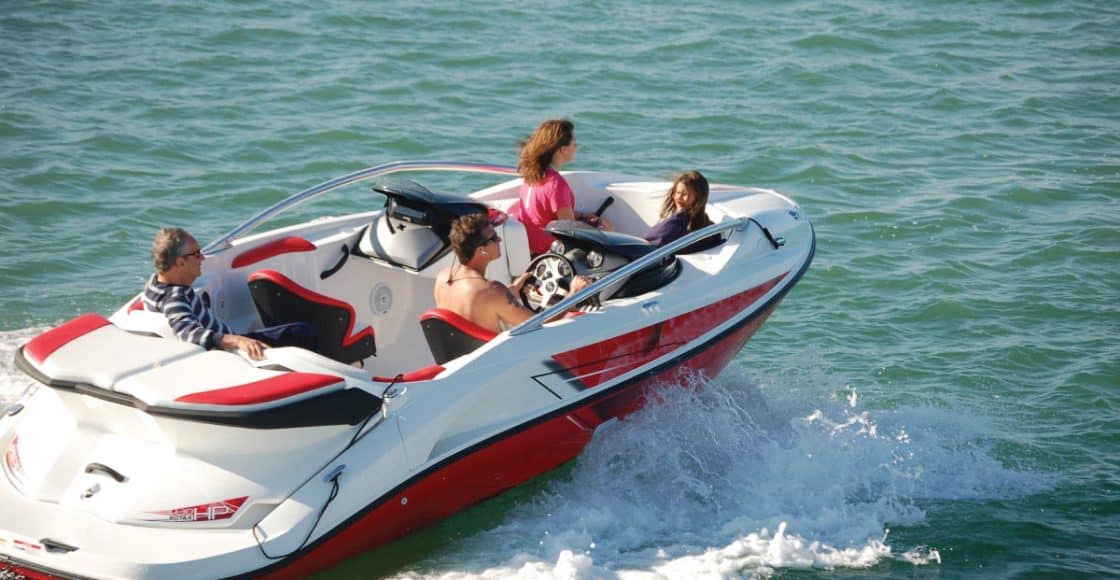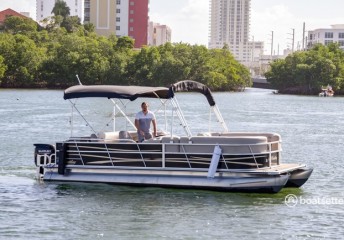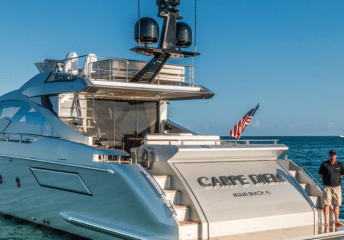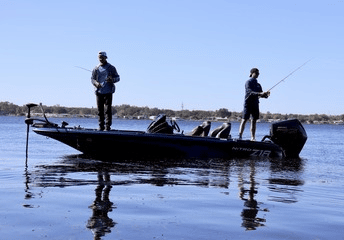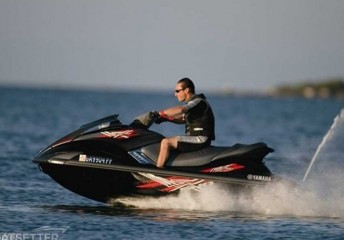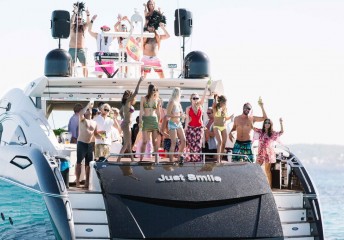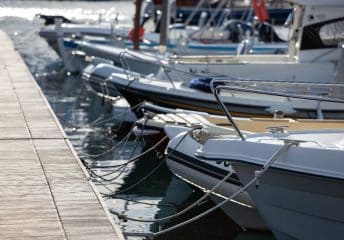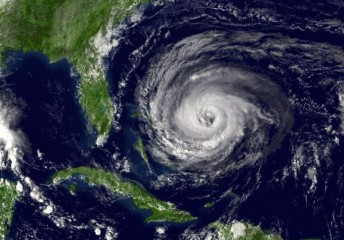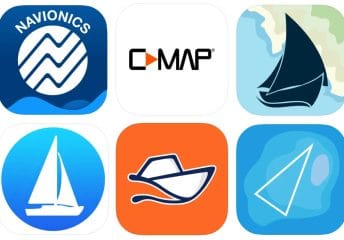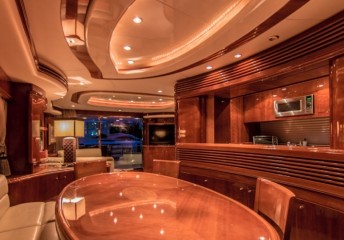Small Boats: What Type is Right for You?
Last Updated on August 17, 2023 by Boatsetter Team
When it comes to boats, sometimes “small” is a good thing. This is especially the case with our friend, the powerboat (under 16 feet in length).
Here, we highlight the advantages and explain the disadvantages of owning a small powerboat. We’ll also look at some of your options when considering the various small boat types.
- Pros of owning a small powerboat
- Cons of owning a small powerboat
Read all the way through and catch all Pro Tips.
List your boat & start earning an avg. of $20K yearly with Boatsetter
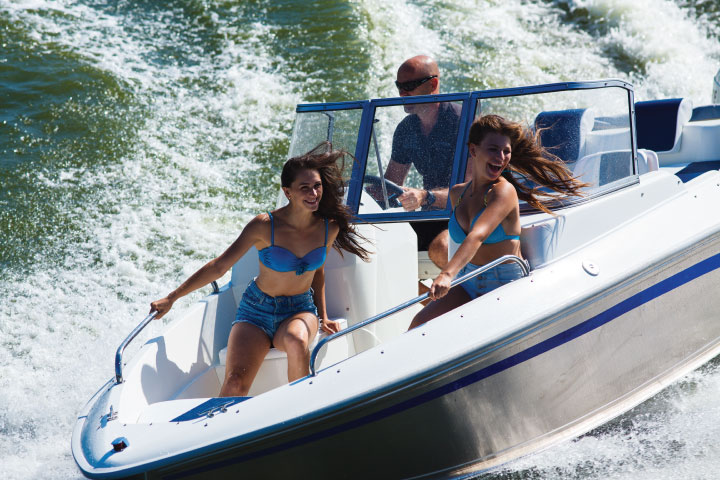
Pros of owning a small powerboat
- Lower purchase price: When comparing boats of the same type, a smaller boat will almost always cost less than a bigger boat.
Pro Tip: This is not always the case because some brands command a premium price despite the model’s size. Take, for example, this small Boston Whaler, and it may cost more than a mid-size runabout by another brand.
- Lower insurance cost: Boat insurance premiums are based primarily on the boat’s value, so a lower-cost boat will cost less to insure than a bigger boat.
- Lower cost to operate: Fuel is the highest cost of operating any powerboat, and a small boat needs a small engine, which will use less fuel than a bigger boat.
- Easier to tow: Most boats under 16 feet in length weigh less than 5,000 pounds on a trailer and can be towed with a mid-size SUV, van, or compact truck. No need to invest in a monster truck!
- Easier to store: A small boat may fit in your garage, especially if the trailer has a swing-away tongue.
- Easier to handle on the water: If you’re a novice boater, a smaller boat may be easier to handle around the dock, easier to launch and load off the trailer, and generally less intimidating than a bigger boat.
READ MORE: Boat Rentals by Owners- Here’s What to Expect
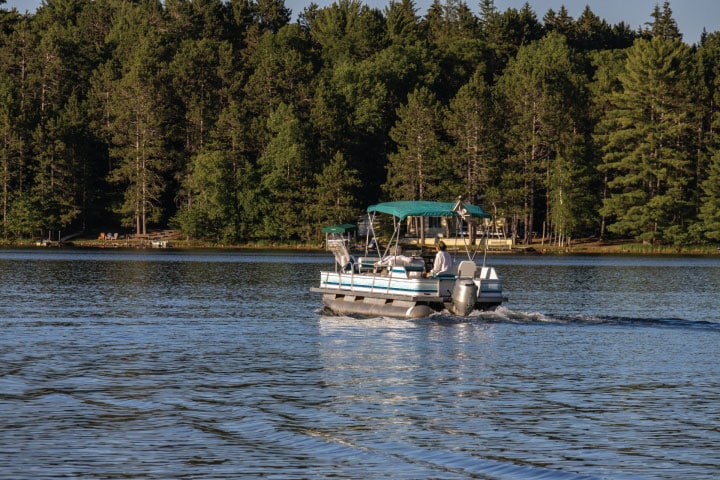
Cons of owning a small powerboat
- Small boat = small crew: Seating and weight capacity will limit the number of people you can comfortably and safely have aboard. You’ll also have less room for coolers, tubes, and other gear.
- Fair weather boating: A small boat will not be comfortable if the water gets rough. Ideally, you’d use a small boat on a smaller lake or river less prone to stiff chop or big waves and wakes.
- Limited power & performance: You don’t expect to go fast in a small boat (with the exception of a PWC), if you’re interested in water sports, like tubing or wakeboarding, a small boat may not be the one.
Pro Tip: Pulling a big tube without a struggle usually requires at least a 150-hp outboard.
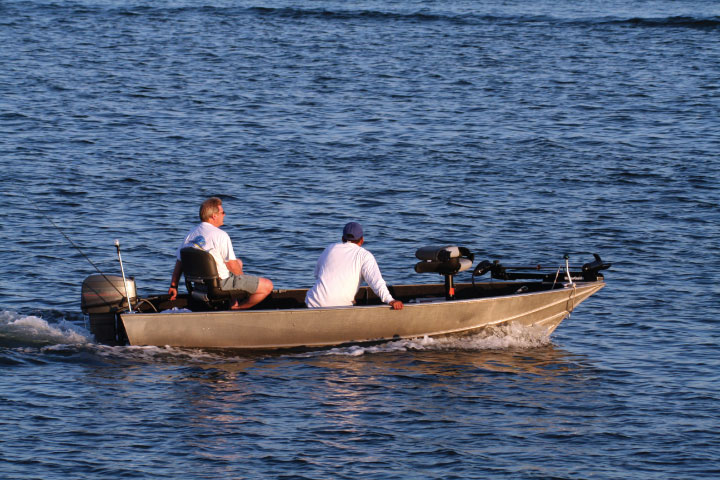
Interested in buying a small powerboat?
You’ll have many choices when considering a powerboat. Here are some of the most popular powerboats in sizes under 16 feet.
Pontoon boats: No small boat may offer more elbow room than a compact pontoon, such as the Lowe Ultra 160 Cruise and the classic Sun Tracker Bass Buggy 16. Compact Sea Doo Switch pontoons feature jet propulsion. These boats are very stable, easy to handle, and can carry up to seven people.
Runabout boats: Also called a bow-rider, this is a great all-around family boat. Compact runabout models like the Bayliner 160 Bowrider and the Tahoe T16 are outboard-powered.
Deck boats: A deck boat offers a layout with more interior space than a runabout. There are a few examples in the under-16 class, most notably the Bayliner Element M15.
Fishing boats: Most fishing boats in this size range will have rugged aluminum construction. Check out these fishing boat options:
- The Lund WC-16 (also offered in 12- and 14-foot lengths) uses a tiller-steer outboard, saving space and decreasing the price.
- The Tracker SuperGuide V-16 SC has a small console with remote steering.
- Compact aluminum bass boats like the Lowe Skorpion 16 have a mod-v hull shape, lower freeboard, and a casting deck.
Jet boats: A jet boat is propelled by a jet of water which allows it to power through shallow waters. Jet boats are also easy to maintain, agile, and a blast to drive. Check out the Scarab Jet 165 ID.
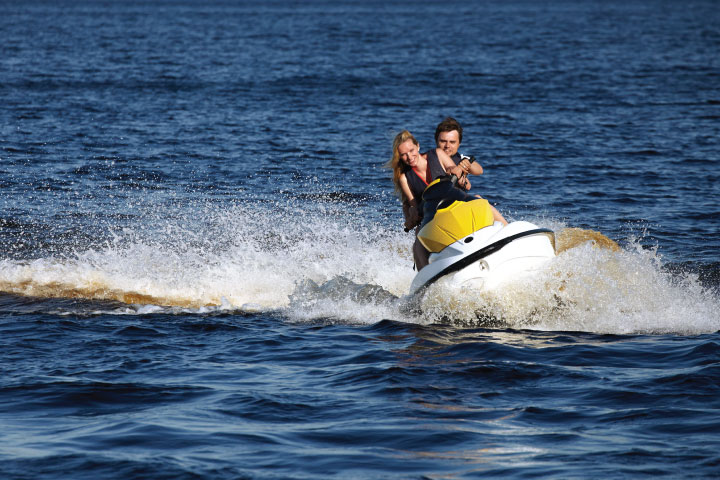
Personal watercraft (PWC): Top PWC models measure about 13 feet in length and can accelerate like a rocket to a top speed approaching 65 mph.
Pro Tip: Luxury models can be equipped with touring seats, audio systems, and GPS navigation, and there are specialized models designed for fishing and wake sports. Three-passenger models are the most popular, as they can be used as a tow sports vehicle in most states. Check out the PWC models at Sea Doo, Yamaha WaveRunner, or Kawasaki Jet Ski.
Utility boats: Most boats in this category are made from rugged aluminum, and may have a vee, mod-vee, or flat-bottom jon boat hull. The vee hull is more comfortable in choppy water, while the mod-vee and jon styles like the Crestliner Jon series draw very little water and are popular for rivers and shallow back-waters and marshes. These are great boats for hunting and fishing but typically offer very few creature comforts. The smallest examples may fit in the bed of a pickup truck.
Inflatable: Inflatable boats are rugged and can be easily stored in the off-season – just let out the air, and most soft-bottom models roll up into a carry case. Inflatable boats are offered in a very wide range of sizes and prices.
Pro Tip: Those with a rigid bottom (made of fiberglass), such as the West Marine RIB 330 offer more performance and better handling than soft-bottom models like the Beluga 14.
There’s no rush in purchasing a boat. Taking your time and experimenting with different boat types, brands, and manufacturers will give you a better idea of the type of boat owner you want to become.
Take your time and browse through boat types, don’t forget to book to take out for a test cruise. Of course, we’ll be there for you once you buy a boat, too! List your boat for free on Boatsetter to offset boat ownership costs.
About us
Boatsetter is a unique boat-sharing platform that gives everyone — whether you own a boat or you’re just renting — the chance to experience life on the water. You can list a boat, book a boat, or make money as a captain.
List your boat & start earning an avg. of $20K yearly with Boatsetter

Charles Plueddeman is a self-employed writer and photographer based in Wisconsin. A staff editor and contributor to Boating Magazine since 1986, he is the author of its “Off My Dock” column. In the marine realm he specializes in engine technology and trailerable boats. His editorial work has appeared in many national publications, including Popular Mechanics, Men’s Journal, Playboy, Popular Science, Cycle World, and Harley-Davidson Enthuisast.
